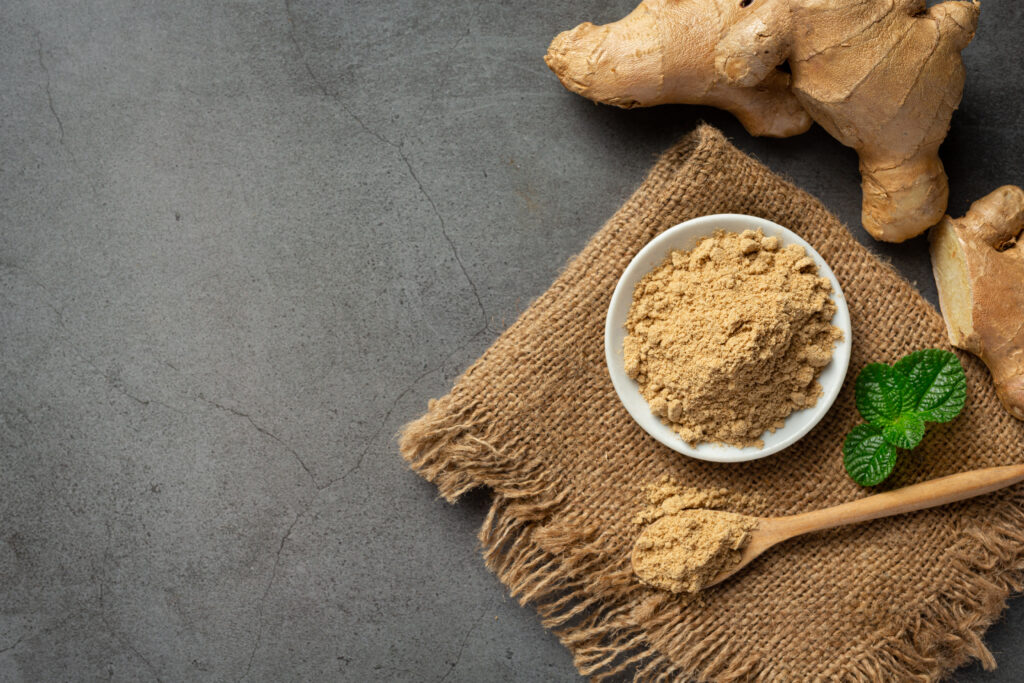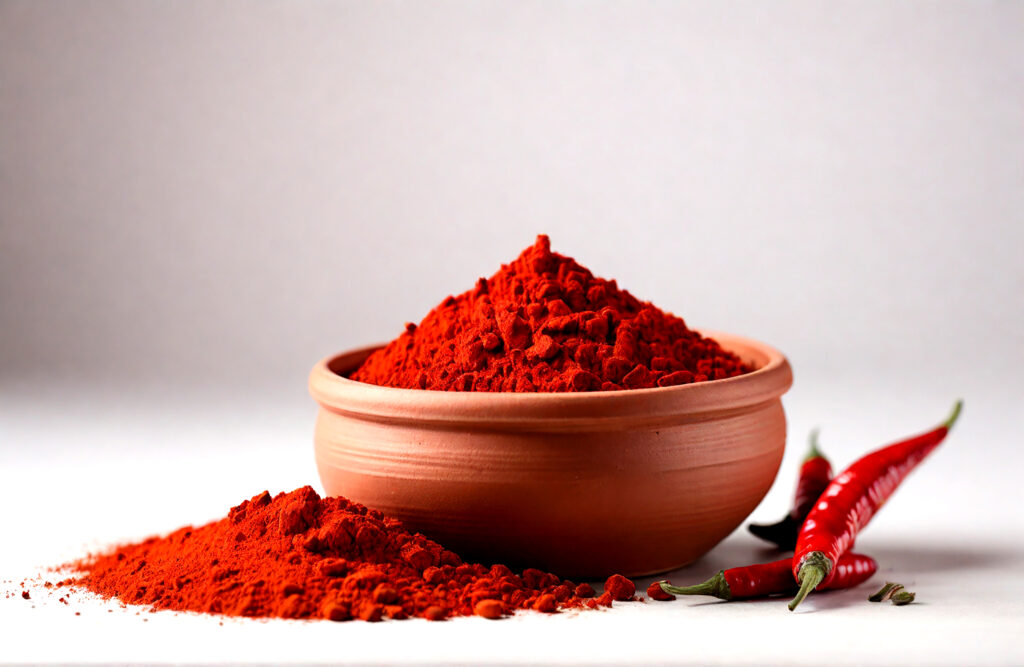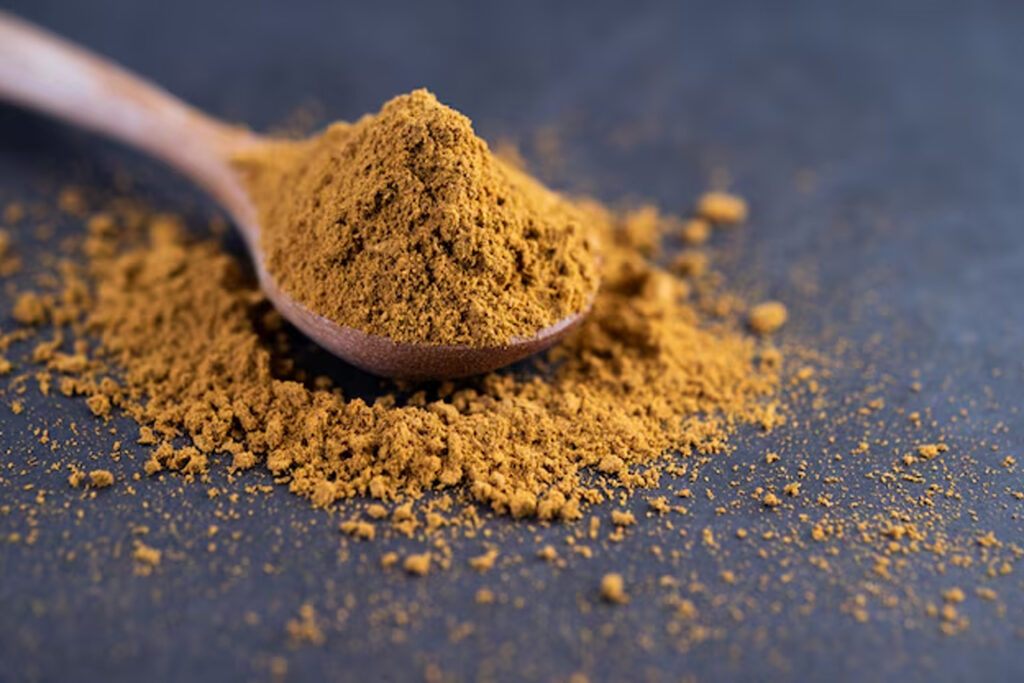Turmeric Powder

Product Name
Turmeric Powder
Origin
India
Type
Powder
Turmeric powder is a bright yellow-orange spice that comes from the turmeric plant. It is made by grinding the roots of the turmeric plant into a fine powder. It has been used for centuries in cooking, medicine, and religious ceremonies in India and other parts of Southeast Asia.
It has a long history that dates back to ancient times. It was first used as a dye and then as a spice in Indian cuisine. It was also used in Ayurvedic medicine, a traditional form of Indian medicine, to treat a variety of health conditions.
Today, It is widely used around the world in both culinary and medicinal applications. Its unique flavor and health benefits have made it a popular ingredient in many dishes and supplements.
FAQs
Nutritional Value of Turmeric Powder
- >> Curcumin: This is the primary active ingredient in turmeric powder and is responsible for its bright yellow-orange color and many health benefits.
- >> Dietary fiber: It contains a small amount of dietary fiber, which can help promote healthy digestion.
- >> Iron: It is a good source of iron, a mineral that is important for red blood cell production and overall health.
- >> Manganese: It is also a good source of manganese, a mineral that is important for bone health and the metabolism of carbohydrates and fats.
- >> Anti-inflammatory properties: Curcumin, the primary active ingredient in turmeric powder, has potent anti-inflammatory properties. This can help reduce inflammation throughout the body and may help alleviate symptoms of conditions such as arthritis, inflammatory bowel disease, and asthma
- >> Antioxidant properties: Curcumin is also a powerful antioxidant, which means it can help protect the body from damage caused by harmful free radicals.
- >> Potential anti-cancer properties: Some studies have suggested that curcumin may have anti-cancer properties and may help prevent the growth and spread of cancer cells.
- >> Brain-boosting effects: Curcumin may also have benefits for brain health, including improving memory and reducing the risk of age-related cognitive decline.
- >> Heart-healthy effects: Some research has suggested that curcumin may help lower cholesterol levels and reduce the risk of heart disease.
Culinary Uses of Turmeric Powder
- >> As a spice: It is often used as a spice in Indian cooking and can be added to curries, soups, stews, and rice dishes.
- >> As a marinade: It can be combined with other spices, herbs, and acidic ingredients to make a flavorful marinade for meats, seafood, or tofu.
- >> As a seasoning: It can be sprinkled on roasted vegetables, popcorn, or other snacks for a flavorful and colorful twist.
- >> Start with a small amount: Begin with a small amount of it and add more as needed to achieve the desired flavor and color.
- >> Combine with other spices: It pairs well with other spices such as cumin, coriander, and ginger. Experiment with different spice combinations to find your favorite flavor profile.
- >> Use in moderation: While it has many health benefits, it is important to use it in moderation, as too much can cause digestive discomfort or other side effects.
Medicinal Uses of Turmeric Powder
- >> Digestive issues: It has been used to treat digestive issues such as bloating, gas, and indigestion.
- >> Wound healing: It has been applied topically to wounds to promote healing and reduce inflammation.
- >> Pain relief: It has been used to alleviate pain caused by conditions such as arthritis and headaches.
- >> Anti-inflammatory properties: It has been shown to have powerful anti-inflammatory properties, which can help reduce inflammation throughout the body and may be beneficial for conditions such as arthritis, inflammatory bowel disease, and asthma.
- >> Antioxidant properties: It is a potent antioxidant, which means it can help protect the body from damage caused by harmful free radicals.
- >> Potential anti-cancer properties: Some studies have suggested that turmeric may have anti-cancer properties and may help prevent the growth and spread of cancer cells.
- >> Brain-boosting effects: It may have benefits for brain health, including improving memory and reducing the risk of age-related cognitive decline.
- >> Heart-healthy effects: Some research has suggested that turmeric may help lower cholesterol levels and reduce the risk of heart disease.
- >> Arthritis: It’s anti-inflammatory properties may help alleviate pain and inflammation associated with arthritis.
- >> Digestive issues: It may help alleviate symptoms of digestive issues such as bloating, gas, and indigestion.
- >> Depression: Some studies have suggested that turmeric may have benefits for mental health and may be helpful in treating symptoms of depression.
- >> Cancer: While more research is needed, some studies have suggested that turmeric may have anti-cancer properties and may help prevent the growth and spread of cancer cells.
Get In Touch
Our Certification









